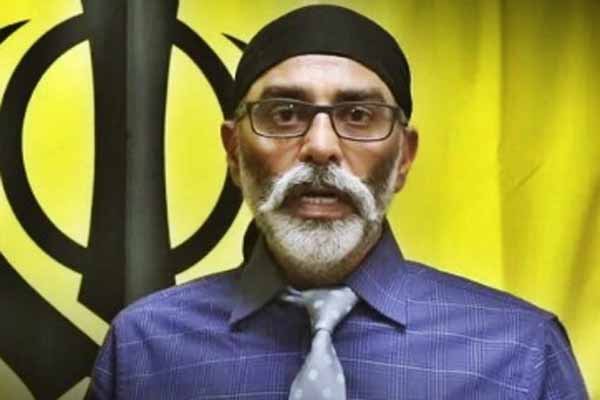The United States government has raised objections to providing defence materials for Indian national Nikhil Gupta, who is currently detained in a Czech prison on charges related to a foiled assassination attempt. Gupta, 52, is facing accusations of being involved in a murder-for-hire plot targeting Khalistani terrorist Gurpatwant Singh Pannun, and the US government is seeking his extradition to face charges on American soil.
The objection from the US government comes in response to a ‘Motion to Compel Production of Discovery’ filed by Gupta’s attorney on January 4 in the US District Court, Southern District of New York. The motion sought to direct federal prosecutors to provide “the defence materials relevant to its ability to defend the instant charges.”
In a reply filed with the district court on Wednesday, the US government insisted that Gupta’s motion asking for discovery material should be denied. The government stated that it would provide the requested information only upon Gupta’s appearance in a New York court and arraignment in the case, as reported by PTI.
Gupta was charged by federal prosecutors in an indictment unsealed in November last year. The charges revolve around his alleged collaboration with an Indian government employee in a plot to kill Gurpatwant Singh Pannun, who holds dual US and Canadian citizenships. Pannun is associated with Khalistani separatist activities.
The foiled assassination attempt involved an agreed payment of $100,000 to an assassin to kill Pannun, who resides in New York City. Gupta was arrested in Prague, the Czech Republic, on June 30, 2023, and is currently being held there. The US government is actively pursuing his extradition to the United States to face the charges.
The legal proceedings have taken an interesting turn with Gupta’s attorney seeking access to defence materials crucial for building a case. However, the US government’s stance to provide such materials only after Gupta’s appearance in a New York court adds a layer of complexity to the situation.
The motion filed by Gupta’s attorney reflects a standard legal procedure wherein the defence seeks relevant materials that could impact the case. The defence’s request for discovery material is a fundamental aspect of ensuring a fair and just legal process.
In the motion, Gupta’s attorney sought to compel federal prosecutors to provide essential discovery materials relevant to the charges. The response from the US government, opposing the motion during the pendency of Gupta’s extradition proceedings in the Czech Republic, underscores the procedural challenges associated with cross-border legal cases.
The ongoing legal battle highlights the intricacies of extradition proceedings and the interplay of legal frameworks between the US, the Czech Republic, and potentially other jurisdictions. Gupta’s arrest in Prague under the bilateral extradition treaty between the US and the Czech Republic sets the stage for a complex legal process.
The charges against Gupta, including his alleged collaboration with an Indian government employee in a plot to assassinate Pannun, carry serious legal consequences. The foiled plot, with its international dimensions, raises questions about the coordination and cooperation required between involved countries in legal proceedings.
As the legal proceedings unfold, the case draws attention to issues of transnational crime, extradition treaties, and the complexities of prosecuting individuals involved in alleged criminal activities across borders. The extradition process, which involves adherence to established legal norms and diplomatic protocols, adds an additional layer of complexity to cases with international ramifications.
The US government’s objection to providing defence materials for Nikhil Gupta, pending his appearance in a New York court, underscores the legal intricacies associated with extradition proceedings in cross-border cases. As the legal battle continues, it serves as a reminder of the challenges posed by transnational crime and the need for robust legal frameworks to address such issues effectively.
